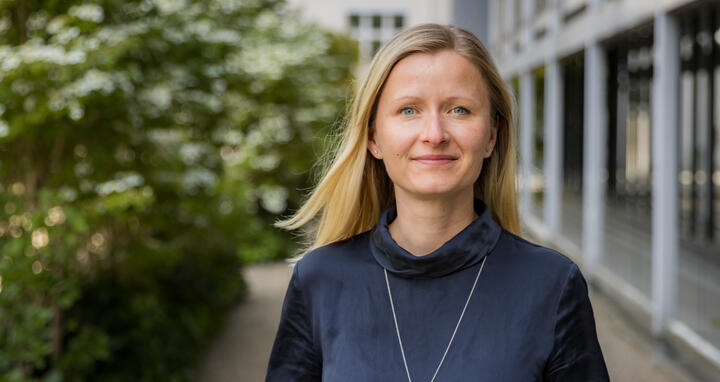Welcome, Sarah Hedtrich!
Sarah Hedtrich wants to develop a gene therapy for the currently incurable disease ichthyosis, among others. “It is characterized by excessive keratinization of the skin, which results in the formation of scales and the lack of an intact skin barrier against pathogens, making patients prone to frequent infections, especially during childhood,” she says. “People with the disorder feel disfigured and – especially in the case of newborns – struggle with high water loss through the skin, which can lead to life-threatening situations.”
The rare disease is caused by a single mutation in the gene for an enzyme that enables cross-linking of the cells in the upper layer of the skin. Hedtrich wants to replace the faulty gene with a working copy: “The only problem is how to get CRISPR-Cas into the diseased skin cells.” Systemic delivery does not work for skin diseases, which means CRISPR cannot be injected into the bloodstream or swallowed in pill form. A simple ointment or cream is not sufficient either as a carrier, because the keratinized skin of patients is difficult to penetrate. “Jet stream injectors that use air could help here,” says Hedtrich. To test this procedure, her team is developing three-dimensional human skin models, which they are building from patients’ cells or healthy donors’ cells.
Organ-on-chip: advantages for animal welfare and translation
Hedtrich also hopes to use tissue engineering to develop bronchial epithelium models in order to provide a human model system for her second research focus, the human lung. Her goal: to create an organ-on-a-chip that contains blood vessel-like structures, which even simulate blood pressure. “Such models are very good at emulating processes in the human organism,” Hedtrich says. This would bring great advantages in terms of animal welfare and translation.
Hedtrich studied pharmaceutical sciences in Leipzig before earning a doctorate in pharmacology from Freie Universität Berlin (FU). She then held postdoctoral positions at LMU Munich and Tufts University in Boston. From 2013 to 2015 she led a junior research group at the FU’s Institute of Pharmacy, and in 2015 she became an Assistant Professor at the FU. In 2019 she was named an Associate Professor at the University of British Columbia in Vancouver, Canada. She joined the BIH in 2021 with a Johanna Quandt Professorship.





